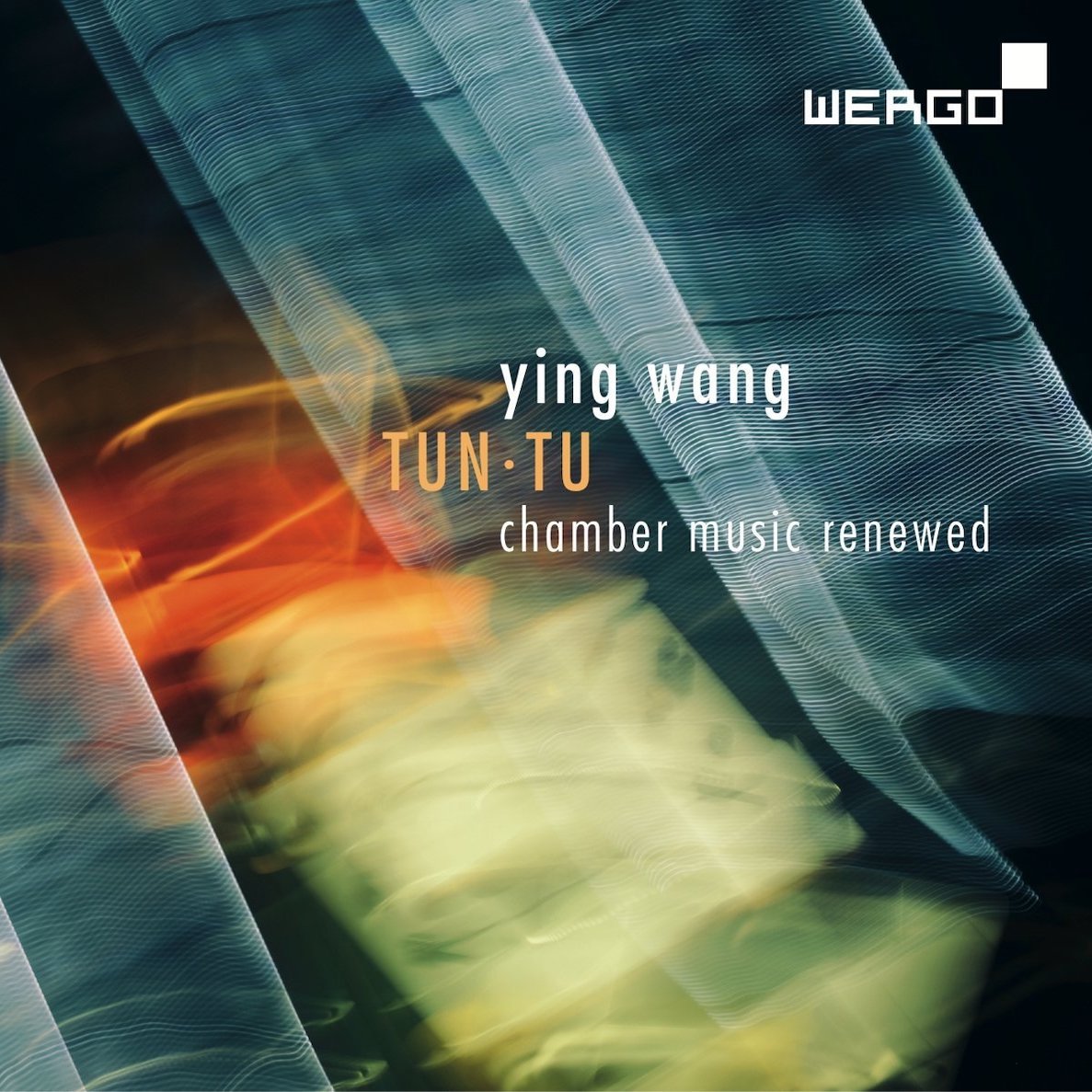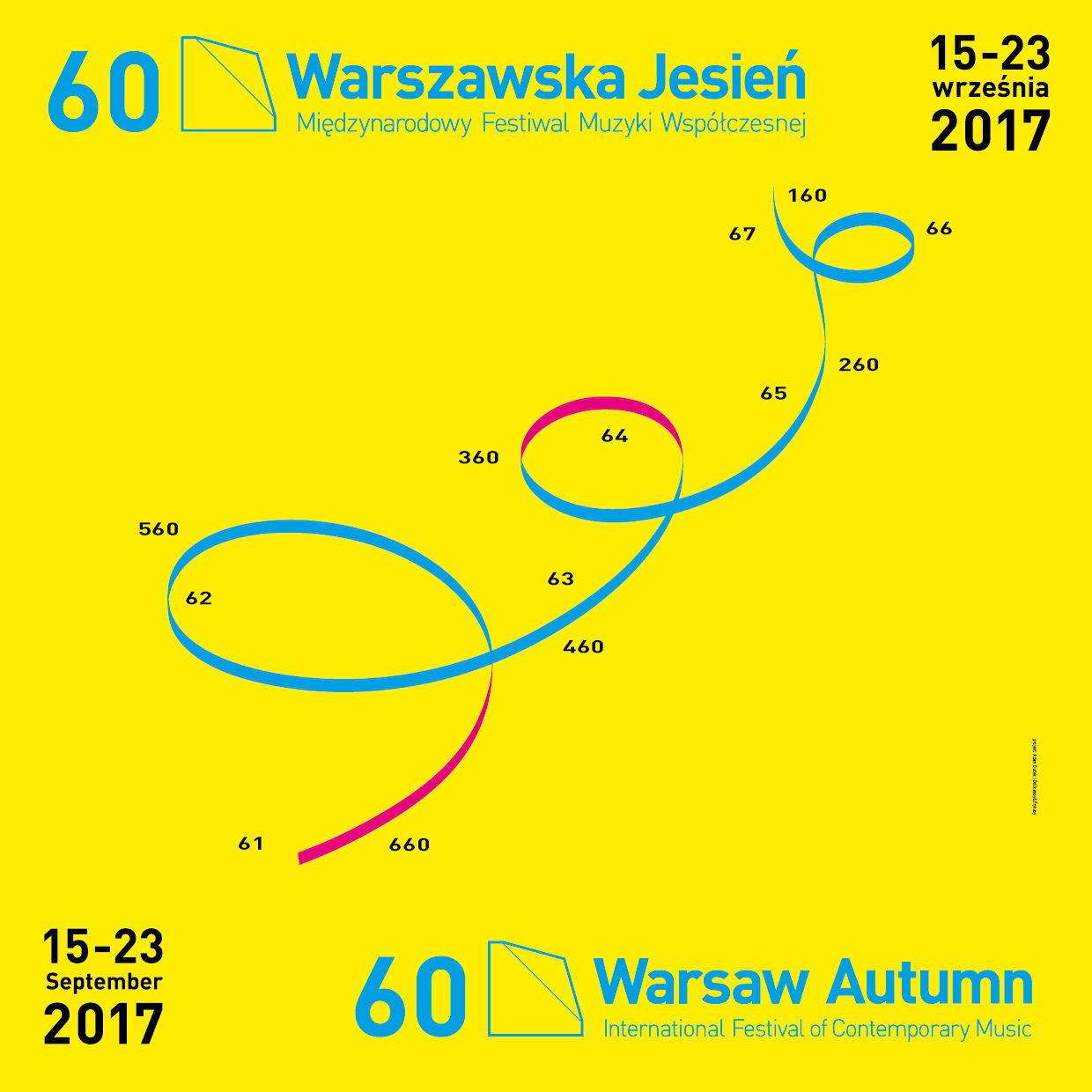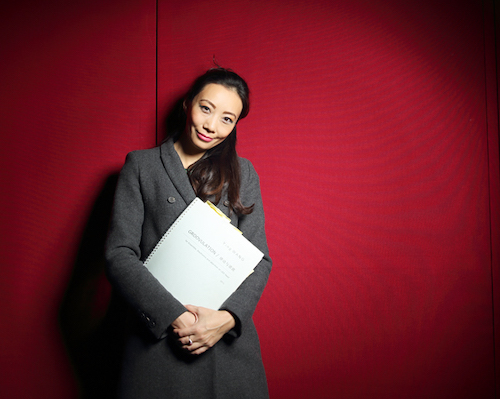UPCOMING EVENTS
UPCOMING EVENTS
CONCERTS, EVENTS, FESTIVALS
Ensemble NEOS
Konserhuset stockholm
Tree of Water
for flute, clarinet, percussion, piano violin, viola and Violonvello
Cuba band
Villa und Kirche Elisabeth, Berlin
¾ - Trio in the Cube (2021)
for Pipa, Percussion and Guzheng
Cantando Admont
Wiener Hofburgkapelle
Bal du noir
für SATB und Orgel - All Splendor is a Self-Portrait of the Soul
Cantando Admont
Mariahilferkirche, Graz
Bal du noir
für SATB und Orgel - All Splendor is a Self-Portrait of the Soul
ECLAT - Preisträgerkonzert
Theaterhaus, T1, Stuttgart
für Violine solo und Ensemble 2019
Music for DUO - AMERICAN GODS series
Ensemble KNM
Konzerthaus Berlin
AMERICAN GODS series - Musik für DUO
Alt/voice (Thickets of Love) Mathias Monrad Møller, Sebastian Berweck
Radialsystem, Berlin
MASK - Bitcrush of Phantoms ( 2025/26)
RE:Wilding Über Ying Wangs Orchestermusik
Egbert Hiller
DLF - Atelier neuer Musik
RE:Wilding Über Ying Wangs Orchestermusik
LAB51/ Johanna Vargas (Soprano) and Magdalena Cerezo (Piano)
silent green, Berlin
Desire – Venus counsels RealDoll
ensemble XXI. jahrhundert
DIS-Appearance
for ensemble 20/21
Frequenz Ludwig – PODIUM Esslingen
CONCERTS, EVENTS, FESTIVALS
Ensemble NEOS
Konserhuset stockholm
Tree of Water
for flute, clarinet, percussion, piano violin, viola and Violonvello
Cuba band
Villa und Kirche Elisabeth, Berlin
¾ - Trio in the Cube (2021)
for Pipa, Percussion and Guzheng
Cantando Admont
Wiener Hofburgkapelle
Bal du noir
für SATB und Orgel - All Splendor is a Self-Portrait of the Soul
Cantando Admont
Mariahilferkirche, Graz
Bal du noir
für SATB und Orgel - All Splendor is a Self-Portrait of the Soul
ECLAT - Preisträgerkonzert
Theaterhaus, T1, Stuttgart
für Violine solo und Ensemble 2019
Music for DUO - AMERICAN GODS series
Ensemble KNM
Konzerthaus Berlin
AMERICAN GODS series - Musik für DUO
Alt/voice (Thickets of Love) Mathias Monrad Møller, Sebastian Berweck
Radialsystem, Berlin
MASK - Bitcrush of Phantoms ( 2025/26)
RE:Wilding Über Ying Wangs Orchestermusik
Egbert Hiller
DLF - Atelier neuer Musik
RE:Wilding Über Ying Wangs Orchestermusik
LAB51/ Johanna Vargas (Soprano) and Magdalena Cerezo (Piano)
silent green, Berlin
Desire – Venus counsels RealDoll
ensemble XXI. jahrhundert
DIS-Appearance
for ensemble 20/21
Frequenz Ludwig – PODIUM Esslingen
MUSIC
COMPOSER
"My music and aesthetics are right in the midst of life. I am interested in current topics: culture, ethics, morals, politics, science, and nature. As a composer, I want to positively change the world."
COMPOSER
"My music and aesthetics are right in the midst of life. I am interested in current topics: culture, ethics, morals, politics, science, and nature. As a composer, I want to positively change the world."



Wang has collaborated with numerous orchestras across Europe and Asia, including the Deutsche Radio Philharmonie, SWR Symphonieorchester, Gürzenich Orchester, Brandenburg Symphony Orchestra, ORF Radio Symphonie Orchester Wien, Deutsches Symphonie Orchester Berlin, Avanti!-Orchestra Helsinki, Philharmonic Orchestra Giessen, Philharmonische Orchestra Heidelberg. He has worked alongside conductors such as Markus Stenz, Brad Lubman, Karen Kamensek, Gregor A. Mayrhofer, Bar Avni, Holly Choe, Muhai Tang, Elias Grandy, Marcus Creed, Johannes Kalitzke, Marin Alsop, as well as with ensembles like Phoenix Basel, Lucerne Festival Ensemble, Quatuor Diotima, Ensemble Resonanz, Ensemble UnitedBerlin, Klangforum Heidelberg, Ensemble Mosaik, Ensemble LUX:NM, Ensemble PHACE, Ensemble Reflektor and Ensemble KlangforumWien.
LATEST NEWS
LATEST NEWS

New CD Release – RE:WILDING - MAY 2025
Label: Kairos
After two years of composing, reflecting, and reworking, I’m thrilled to share RE:Wilding — a collection of five pieces written between 2019 and 2022 for orchestra, ensemble, solo instruments, and string quartet.
These works explore memory and transformation, nature and noise, and the blurred boundaries between tenderness and collapse. Acoustic instruments and electronics intertwine without hierarchy, exposing fragility, noise, and quotation as compositional materials.
Rather than delivering fixed messages, the music opens a field of tensions — between gesture and abstraction, control and collapse, presence and disappearance. Cultural memory, ecological crisis, and social injustice emerge through sharp contrasts and layered sonic patterns. Tradition is not romanticized or rejected, but critically reframed in evolving soundscapes that resist stasis.
RE:Wilding is both a personal reflection on 20 years of life in Germany and a broader artistic statement on how sound can embody complexity, resistance, and renewal.
Download booklet HERE>>

„Musik als Transgenneratonales Medium zur Erinnerung und Kritik in China“ - Vortrag an the Humboldt Universität | 2. Mai 2024
Musik als transgenerationales Medium zur Erinnerung und Kritik in China
Institute for Asian and African Studies Humboldt University Berlin, and online via Zoom
Thu 02 May 2024 18:00 - 19:30 (CET)



Lauter! - Neue CD am 29th November
Ethel Smyth (1858-1944) Serenade D-Dur Lauter! Mit weiteren Werken von Ying Wang und "inti figgis-vizueta". Mitwirkende: Ensemble Reflektor, Holly Hyun Choe (Dirigentin)
Das neue Album des ensemble reflektors konzentriert sich auf bemerkenswerte Werke von Komponistinnen. Ethel Smyths „Serenade in D“ wurde seinerzeit ignoriert – sie musste um die Anerkennung männlicher Kritiker und sogar ihrer eigenen Familie kämpfen...

Schloss Wiepersdorf Fellowship 2025
April, Mai, Juni 2025
Ministerium für Wissenschaft, Forschung und Kultur des Landes Brandenburg

Teaching – Summer Semester 2025
At Hochschule für Musik und Darstellende Kunst Mannheim
Composition Department
Assistant Prof. Sidney Corbett

Trip to a Foreign Land
Hochschule Für Musik Nürnberg
9-11. February 2024
Am 9., 10. und 11. Februar wurden zwei sehr gut besuchte zeitgenössische Kammeropern mit teils realem und sehr emotionalem Hintergrund zur Aufführung gebracht.
RECORDINGS
RECORDINGS

RE: Wilding
Five pieces for orchestra, ensemble, solo instruments and string quartet.
Kairos Label
2025

Limbo
Viktoriia Vitrenko, with Ying Wang’s work featured
https://hoerbar.nmz.de/2025/04/viktoriia-vitrenko-limbo/
Viktoriia Vitrenko, voice, piano
Kyiv Dispatch, 2025
Doppel Vinyl: VÖ: 17.02.2025
Digital: VÖ 02.04.2025

Lauter!
Ethel Smyth's Serenade D-Dur and other works from Ying Wang, inti figgis-vizueta
Ensemble Reflektor
Solaire Label
2024

TunTu
(Chamber Music Renewed)
Various Artists
WERGO, 2017, WER 7347 2

Coffee & Tee
Acht Brücken. Musik Für Köln
Ausgewählte Uraufführungen der Festivals 2013 und 2014
Westdeutscher Rundfunk

ROBOTICTack
Warsaw Autumn 2017
Various Artists
Warszawska Jesień: International Festival of Contemporary Music 2017
Polmic / polmic 131-137
PRESS REVIEWS
QUOTES
"Mit dem Thema insgesamt nimmt es Vitrenkos Album insgesamt auf. Und jede der fünf Kompositionen findet in Vitrenkos Performance einen virtuosen, selbstlosen Widerhall und wird damit zu einem seltenen Zeugnis gelungenen politisch-artifiziellen Engagements in dieser kaputten Zeit. Rashad Beckers Abmischung reflektiert das alles und überführt das an sich thematische «Singer-Songwriter»-Setting auf eine zusätzliche akustische Ebene. Insbesondere deutlich bei Ying Wangs «Illuminations». Beeindruckend, bedrückend, aber auch frei!”
“…Fremdartige Klangeffekte mit Flatterzunge, Schwelltönen, Glissandi, Krächzen und kleinen Lippenexpolosionen des Soloinstrumentes entführen etwa in den Regenwald oder in Maschinenhallen. Ratsche und diverses Schlagwerk im Orchester erzeugen hölzerne bis metallische Klänge; in Tropfen, Tupfen und grellem Klirren wird Sinnliches erfahrbar. Knappe Motivzellen und sich überlagernde Structuren verbinden des Werk zu einer gescholossenen Einheit…”
Die Junge Komponistin Ying Wang hat in Shanghai und Köln studiert und dokumentiert dies künstlerisch in ihrem Festival Auftragswerk „Nur Ich“für Streichquartett, Schlagzeug und 3 chinesische Instrumente. Aus Ihrer Musik spricht die Radikalität europäischer Moderne ebenso wie fernöstliche Traditionen. Die Brücke hält.
RADIO INTERVIEWS
ARTICLES
"Die ganze Wucht des Riesenorchesters schlägt dem Publikum im „528Hz“, der Chinesin Ying WANG entgegen, betitelt nach der angeblichen „Liebes-Frequent“ . … Wangs Stück fegt als Wirbelsturm positiver Energie durch den Raum, mit bratenden Synthibässen, quiekendem Blech, verzerrten E -gitarren und peitschenden Rhythmen -grandios. „
- Otto Paul Burkhardt / 8.2.2022
„Die chinesische Komponistin Ying Wang und der Librettist Andreas Karl erzählen in «Lorry 39», was sich im Oktober 2019 in Essex, England, an Todeskämpfen in einem Contai- ner zugetragen hatte. Ihr Musiktheater ist eine Art klaustrophobisches Protokoll, fokussiert in den Empfindungen einer Protagonistin. Wang zieht viele Register der Avantgarde, gerade die Bespiegelung des Ist-Zustands mit einem elektronischen Gegenüber, zeugt von handwerklichem Können. “
- Alexander Dick / 12.2022
(nmz)”… mit Schwerbungen in ständigem Fluss, Glissandi in unterschiedlichen Tempo, Dynamik und Spieltechniken. Wangs Cluster werden von der Live- Elektronik im Raum verhalt, schaffen rundum ein artifizielles Wald-Erlebnis.”
- Glissadulation / von Peter P. Pachl / 15.04.2014
Überwundener Kulturschock / von Egbert Hiller/ Die Komponistin Ying WANG zwischen Deutschland und China
-Neue Zeitschrift Für Musik #6_2017
nl / 12.11.2012
-Die Rheinpfalz
Summer 2015 / von Barbara Neundlinger und Brigitte Burgmann-Guldner
-Kulturkontakt Magazine
Unermüdlich strömend, nahezu transparent / von Claudia Nack/ 10.10.2013
MAZ Stadtkurier
Chen Nan 陈 楠 / 20.07.2012
-China Daily
PUBLICATIONS
PUBLICATIONS
WORK PARTNERS
COLLABORATION WITH INSTITUTES, ENSEMBLES AND STUDIOS
WORK PARTNERS
COLLABORATION WITH INSTITUTES, ENSEMBLES AND STUDIOS
Lucerne Festival
ZKM | Zentrum für Kunst und Medientechnologie
Heidelberger Künstlerinnenpreis 2017
PRIVATE LESSONS
PRIVATE LESSONS
Since 2013, Ying Wang has been an esteemed faculty member at the Conservatory of Music in Shanghai, concurrently providing tailored private lessons to students across Europe and China.
For private lesson inquires please












